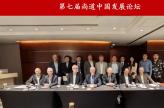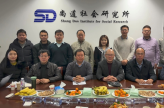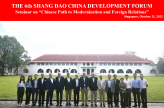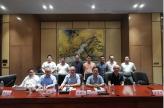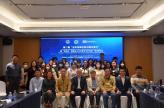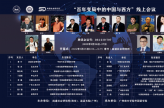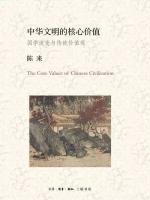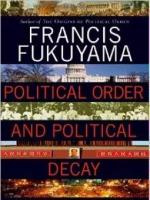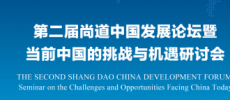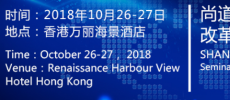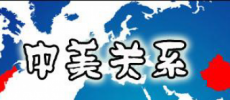《中国日报》:Misunderstandings on ‘one country, two systems’
更新时间:2017-08-15 22:35:11 | 来源: 中国日报
Misunderstandings on ‘one country, two systems’
By Han Zhu
By Han Zhu
Han Zhu notes that Hong Kong’s high degree of autonomy is not an intrinsic feature of the territory, as in a federal state, but is granted by central government authorities
The development and progress of Hong Kong in the past 20 years after its return to China have been witnessed and recognized by all. Today, Hong Kong is one of the best cities in the world in terms of economic freedom, per capita income, level of rule of law, public security and average life expectancy, surpassing the United States and many European countries. Hong Kong owes its gratifying achievements to implementation of the “one country, two systems” principle. However, after 20 years of practice of “one country, two systems” in Hong Kong, misunderstanding about this principle, especially the “two systems” part, still exists among politicians in Hong Kong.
What does “two systems” mean exactly? According to the Basic Law, “two systems” refers to nothing else but the socialist system and capitalist system. When judging whether “two systems” has been effectively implemented in Hong Kong, the most fundamental criterion should be: Is the capitalist system well maintained in Hong Kong? Is capitalism in Hong Kong running well? Unfortunately, some people in Hong Kong only care about how much “inherent power” Hong Kong has, and at which point central authorities should stop concerning themselves with Hong Kong issues, instead of focusing on how well capitalism works. This attitude has completely deviated from the original intent of the “one country, two systems” principle.
What has been overlooked is that as an SAR in a unitary state, the autonomy Hong Kong enjoys does not change the legal framework that the Hong Kong SAR is a local organ of state power at primary level, led by the central leadership
According to the national Constitution and the Basic Law of the Hong Kong Special Administrative Region, there is no room for any decentralization from central government and Hong Kong SAR Government. Hong Kong, as an SAR, does not have any inherent power itself, and all Hong Kong’s powers are conferred by the central government. There is no doubt that after the handover Hong Kong has enjoyed a very high degree of autonomy which is rare in today’s world. Under the Basic Law, Hong Kong has independent judicial power — including that of final adjudication, currency issuing power and customs and immigration jurisdiction — while many states of federal system countries have no such powers. As a result, some people take it for granted that Hong Kong, as an SAR, should be independent of the authority of central government, except that it has no jurisdiction over acts of state such as defence and foreign affairs. It is precisely because of this misunderstanding that, when the central government released “The Practice of the ‘One Country, Two Systems’ Policy in the Hong Kong Special Administrative Region” in 2014, some people were dismayed and disoriented.
What has been overlooked is that as an SAR in a unitary state, the autonomy Hong Kong enjoys does not change the legal framework that the Hong Kong SAR is a local organ of state power at primary level, led by the central leadership. Even if it has a higher degree of autonomy than many states in a federal dispensation, it could not change the fact that the SAR is under China’s central government, because the high degree of autonomy of the SAR is not an inherent power but comes solely from authorization by the central leadership; its high degree of autonomy is subject to the level of the central leadership’s authorization, which is completely different from the state power in a federal system. The fundamental difference lies in that even if the state power of the federal state is less than the autonomy of the Hong Kong SAR, its power is inherent in the state. The difference between two systems must not be confused.
In short, the “two systems” in “one country, two systems” refers to the social systems of socialism and capitalism adopted by the mainland and Hong Kong respectively, rather than the decentralization from central leadership to the HKSAR Government. It is particularly necessary to clarify the meaning of “one country, two systems” on the 20th anniversary of Hong Kong’s return to the motherland.
The author is research fellow and director of Shangdao Institute for Social Research.
http://www.chinadailyasia.com/articles/76/228/149/1501644648728.html?from=groupmessage



